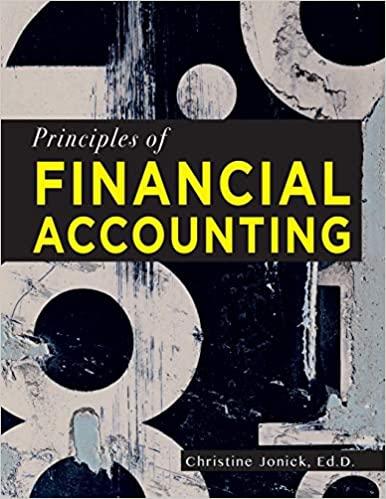Answered step by step
Verified Expert Solution
Question
1 Approved Answer
Problem 6-12 (Algo) Long-term contract; revenue recognized over time vs. upon project completion; loss projected on entire project [LO6-9] Curtiss Construction Company, Incorporated, entered into

 Problem 6-12 (Algo) Long-term contract; revenue recognized over time vs. upon project completion; loss projected on entire project [LO6-9] Curtiss Construction Company, Incorporated, entered into a fixed-price contract with Axelrod Associates on July 1, 2024, to construct a four-story office building. At that time, Curtiss estimated that it would toke between two and three years to complete the project. The total contract price for construction of the building is $4,600,000. The building was completed on December 31, 2026. Estimated percentage of completion, accumulated contract costs incurred, estimated costs to complete the contract, and accumulated billings to Avelrod under the contract were as follows: Required: 1. Compute gross profit or loss to be recognized as a result of this contract for each of the three years. Curtiss concludes that the contract does not qualify for revenue recopnition over time. 2. Assuming Curtiss recognizes revenue over time according to percentage of completion, compute gross profit or loss to be recognized in each of the three years. 3. Assuming Curtiss recognizes revenue over time according to percentage of completion, compute the amount to be shown in the bolance sheet at the end of 2024 and 2025 as either cost in excess of billings or billings in excess of costs. Complete this question by entering your answers in the tabs below. 1. Compute gross profit or loss to be recognized as a result of this contract for each of the three vears. Curtiss concludes that the contract does not qualify for revenue recognition over time, 2. Assuming Curtiss recognizes revenue over time according to percentage completion, compute grass profit or loss to be recognized in each of the three years. Note: Leave no cells blank - be certain to enter " 0 " wherever required. Loss amounts should be indicated with a minus sign. Complete this question by entering your answers in the tabs below. Assuming Curtiss recognizes revenue over time according to percentage of completion, compute the amount to be shown in the balance sheet at the end of 2024 and 2025 as either cost in excess of billings or billings in excess of costs
Problem 6-12 (Algo) Long-term contract; revenue recognized over time vs. upon project completion; loss projected on entire project [LO6-9] Curtiss Construction Company, Incorporated, entered into a fixed-price contract with Axelrod Associates on July 1, 2024, to construct a four-story office building. At that time, Curtiss estimated that it would toke between two and three years to complete the project. The total contract price for construction of the building is $4,600,000. The building was completed on December 31, 2026. Estimated percentage of completion, accumulated contract costs incurred, estimated costs to complete the contract, and accumulated billings to Avelrod under the contract were as follows: Required: 1. Compute gross profit or loss to be recognized as a result of this contract for each of the three years. Curtiss concludes that the contract does not qualify for revenue recopnition over time. 2. Assuming Curtiss recognizes revenue over time according to percentage of completion, compute gross profit or loss to be recognized in each of the three years. 3. Assuming Curtiss recognizes revenue over time according to percentage of completion, compute the amount to be shown in the bolance sheet at the end of 2024 and 2025 as either cost in excess of billings or billings in excess of costs. Complete this question by entering your answers in the tabs below. 1. Compute gross profit or loss to be recognized as a result of this contract for each of the three vears. Curtiss concludes that the contract does not qualify for revenue recognition over time, 2. Assuming Curtiss recognizes revenue over time according to percentage completion, compute grass profit or loss to be recognized in each of the three years. Note: Leave no cells blank - be certain to enter " 0 " wherever required. Loss amounts should be indicated with a minus sign. Complete this question by entering your answers in the tabs below. Assuming Curtiss recognizes revenue over time according to percentage of completion, compute the amount to be shown in the balance sheet at the end of 2024 and 2025 as either cost in excess of billings or billings in excess of costs


Step by Step Solution
There are 3 Steps involved in it
Step: 1

Get Instant Access to Expert-Tailored Solutions
See step-by-step solutions with expert insights and AI powered tools for academic success
Step: 2

Step: 3

Ace Your Homework with AI
Get the answers you need in no time with our AI-driven, step-by-step assistance
Get Started


